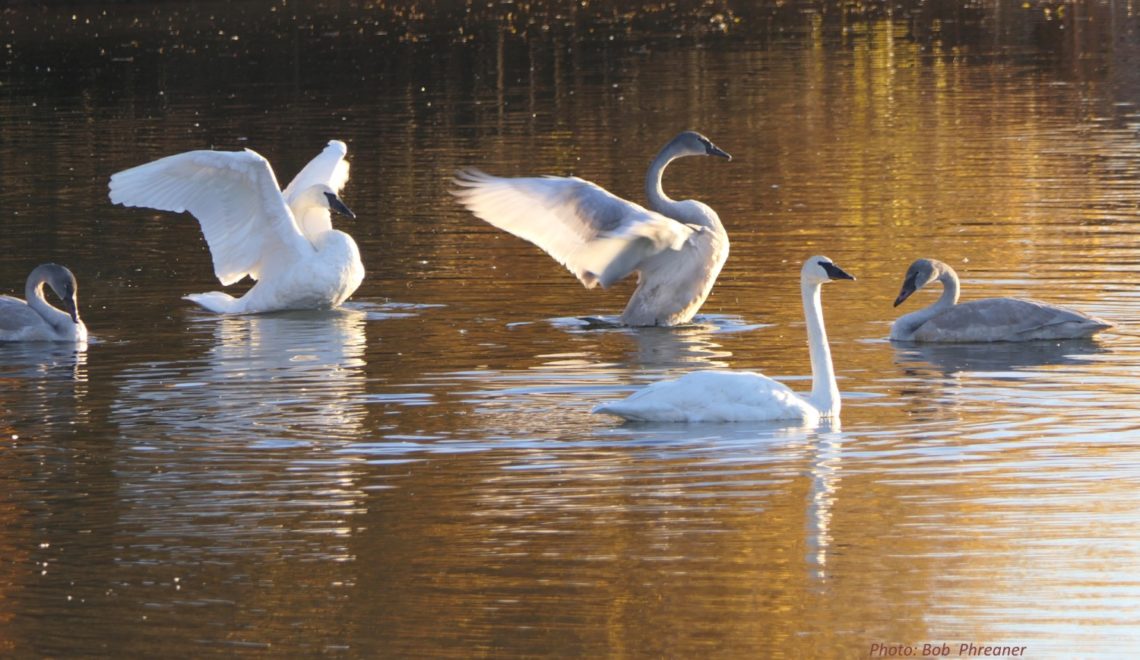
Help Save Trumpeter Swans from Lethal Power Lines
Olympic Peninsula Audubon Society (OPAS), the local community, and Washington Department of Fish and Wildlife (WDFW) want to stop the ongoing injury and death of Trumpeter Swans caused by the power lines along Kirner Road in Clallam County, Washington. Regular survey data collected by OPAS shows the ponds and wetlands on the east side of Kirner Road as a location consistently favored by roosting swans each winter since 2014.
When these 25-pound birds take off in the early morning, they have to quickly gain altitude to climb over power lines that are 35 feet above the level of the pond. OPAS data show power-line strikes occurring primarily during calm conditions. Fog, drizzle and groups of swans flying at once are all factors that contribute to the swans having difficulty seeing the wires and making adjustments for safe clearance.
At the request of WDFW following a swan electrocution in December 2020, Clallam County Public Utility District line crews responsively added 50 more diverters to the power lines, making the lines even more visible to birds. However, within 24 hours of adding the diverters, a Trumpeter Swan suffered serious injury by striking a wire. Even marked with diverters the power lines remain a lethal hazard to swans.
OPAS has launched a GoFundMe fund raising campaign – “Project Swan Safe” – to obtain funds to bury the approximately 350 feet of PUD transmission lines along Kirner Road. These are the lines that are in the take-off path of the swans. The PUD estimates their costs to be $40,000, exclusive of trenching and moving internet and TV cables. As of January 22, we estimate those additional costs at $25,000, so we’ve set our current campaign objective to $65,000.
OPAS appeals to your generosity and urges you to donate in support of this project. Please help us raise the funds needed to bury these lethal power lines in the summer of 2021, so that next November when our swan families fly from their breeding grounds in northern Canada and Alaska, they may safely use their important Sequim-Dungeness roosting ponds.
Click here to donate.

